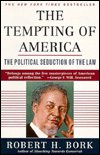1. What Happened to General Motors? Anti-Trust Law
Anti-trust law, conceived and promoted as consumer protection, is actually something else entirely. It was never about protecting the consumer. The idea is that businesses such as Microsoft get too big and then destroy their competition so they can make more money with some unwieldy monopoly. But this scenario is loaded with lies and bad economics. The best known being the mythical "PREDATORY PRICING." This idea that a business would choose to willingly sell at a price below what the market would bear in hopes that competitors would be driven out of business is ludicrous. How long would that take? Months? Years? Even a big business can't afford to operate below cost. And assuming they already have a large market share, predatory pricing then hurts the would-be predator more than it hurts anyone else. And even if current competition went out of business, what about the young upstarts, the new businesses always ready to jump in and sell cheaper than the large monopoly? Even the monopoly will go under if it never recoups its losses from years of selling below cost. And more importantly--PREDATORY PRICING HAS NEVER BEEN PROVEN TO HAVE CREATED A MONOPOLY. It's a losing strategy; you don't become a business success by ignoring profits.
Companies become large and successful by making a better product more efficiently. That is, they sell a good product at a low price. Standard Oil, long ago attacked by a federal anti-trust prosecution, had been providing cheaper and cheaper oil products for fifty years. The price had dropped so much--thanks to Rockefeller's many innovations--that few companies could compete. So they sold their resources to Standard. That's what is supposed to happen in capitalism. The most innovative, most efficient gets more resources and uses them better. In the end, the consumer wins. And that has been true in every anti-trust prosecution to date. The consumers were always winning. But the federal government stepped in anyway, not to protect the consumer (as they always claim), but to protect the less-efficient (but more politically-connected) competition. Anti-trust law has always been at its core ANTI-CAPITALIST.
(Didn't you ever wonder why the corrupt Clinton-Reno Justice Department went after Microsoft? Could they really be the gallant white knight suddenly, rescuing the consumer? No. That was not it at all.)
So many of America's best businesses have been attacked and uselessly prosecuted under bogus anti-trust law that others were afraid they were next. Enter General Motors. Afraid they were next to be sacrificed on the anti-trust altar, in the 1940s and 50s GM settled on a policy: never garner more than 45 % of the U.S. car market. And how does a company keep its share of the market artificially low (in the post-war boom, where people wanted to buy big American cars)? By pricing them too high and building them in a more costly, less reliable fashion. And GM accomplished its goal. It built millions of costly, unreliable cars, and it kept its market share below 45%. But surprise, surprise--suddenly in the 1980s and 90s, GM could no longer compete with the German and Japanese imports. But hey, they avoided an anti-trust suit, the government's way of strangling America's best businesses.
(Another method is tariffs, price controls, and over-regulation. Post-war licensing requirements caused RCA to "outsource" all its techy business--and the Japanese components industry was born. Just one more example of anti-capitalist U.S. law being a boon to foreign competition.)
More to come.


0 Comments:
Post a Comment
<< Home